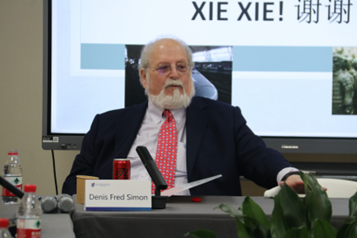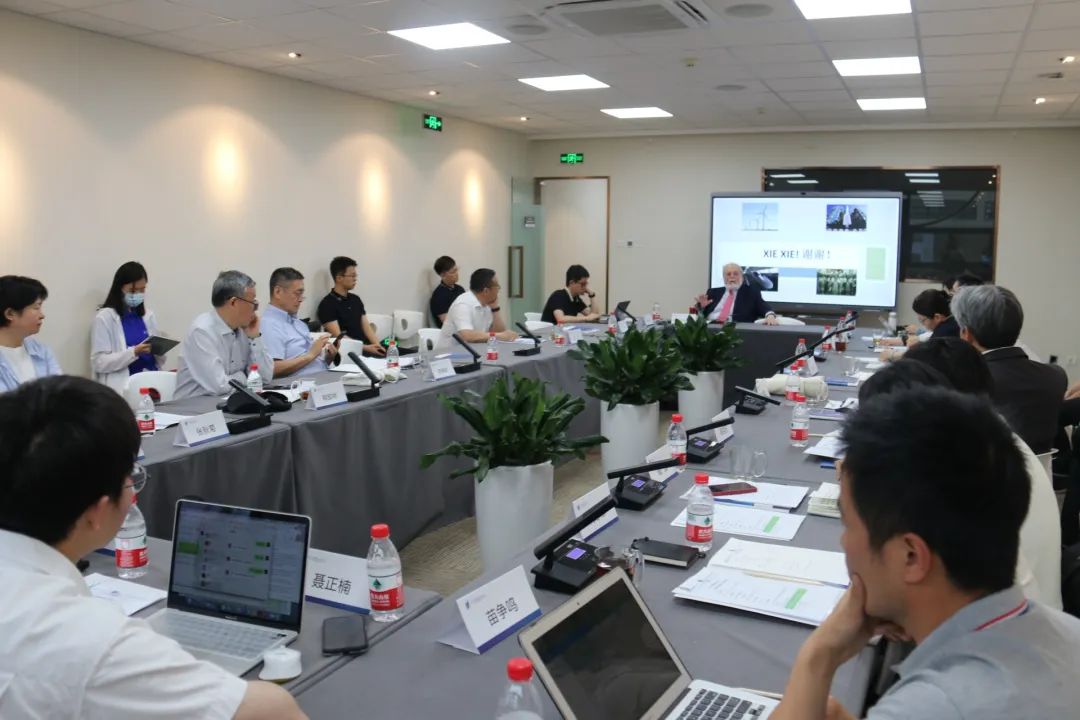On the afternoon of May 24, the Center for International Security and Strategy (CISS) at Tsinghua University organized the 65th Security and Strategy Seminar themed “The Future of China-US Tech Relations.” Denis Simon, an expert on Chinese science and technology policy and a professor at the Kenan-Flagler Business School, University of North Carolina at Chapel Hill, was invited to give a keynote speech. The event was moderated by Chen Qi, CISS Deputy Director and Professor at the Department of International Relations, Tsinghua University. More than ten experts and scholars from Tsinghua University, University of Chinese Academy of Sciences (UCAS), and Beijing Academy of Social Sciences (BASS) participated in the event, along with several CISS experts.

Professor Simon reviewed China’s enormous achievements since its reform and opening up policies had been implemented. He pointed out that China is no longer the “poor and backward” country depicted by Western media in the past, but an emerging dominant power in the global economy and technology. Discussing China-US relations, Professor Simon observed that China has transformed from a diligent “student” into an “active stakeholder” almost on par with the US. Therefore, it is crucial for the two countries to cooperate with each other, which has significant importance not only for their people but also for the world at large.

Following the speech, Chinese experts and scholars engaged in frank discussions with Professor Simon about the complex realities surrounding high-tech fields in both China and the US. Attendees unanimously agreed that the most pressing issue between China and the US was the need to restore mutual trust through collaboration on specific issues. Both sides can coexist within the realms of cooperation and competition, and dialogue is the only way to avoid confrontation, as no party benefits from military conflict. It is essential for both China and the US to improve their outlook on their bilateral relationship and strive for mutually beneficial outcomes that promote global security and stability.
The experts and scholars participating in this seminar included: Jin Xiaoming, Co-Chair of the Research Center for China-US Relations, School of Social Sciences, Tsinghua University; Xing Jijun, Director of the Special Committee for International Cooperation and Science and Technology Diplomacy, Institutes of Science and Development, Chinese Academy of Sciences; Liu Yun, Professor at the School of Public Policy and Management, UCAS; Liu Xielin, Professor at the School of Economics and Management, UCAS; Zhang Qiuju, Research Fellow at the Institutes of Science and Development, Chinese Academy of Sciences; Chu Zhengjie, Associate Research Fellow at the Institute of International Studies, BASS; He Siyu, Assistant Research Fellow at the Institute of International Studies, BASS; Gao Xudong, Professor at the Department of Innovation, Entrepreneurship and Strategy, School of Economics and Management, Tsinghua University; Liang Zheng, Professor at the School of Public Policy and Management, Tsinghua University; Chen Qi, CISS Deputy Director; and Dong Ting, Shi Yan, Sun Chenghao, Zhu Rongsheng, Miao Zhengming and Nie Zhengnan, CISS Assistant Research Fellows.
